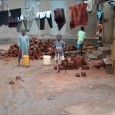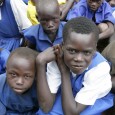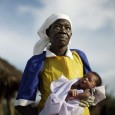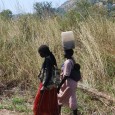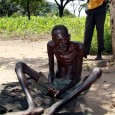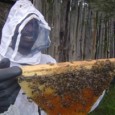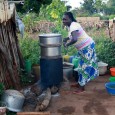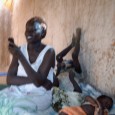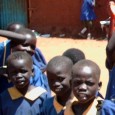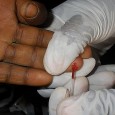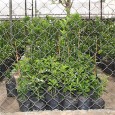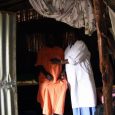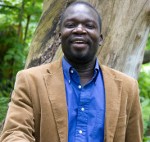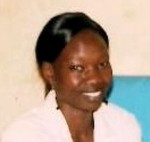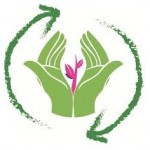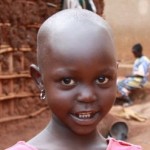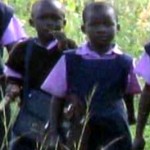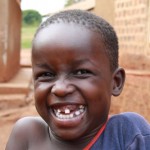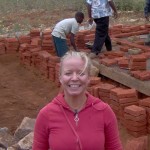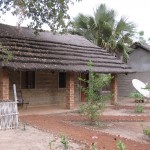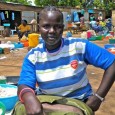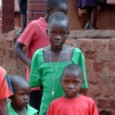Around the world, many people are celebrating the holiday season. Whether you’re putting up a Christmas tree, menorah, or kinara, please consider inspired gifts that help children in need. Instead of exchanging token presents, such as soaps, fruit cakes, or candles, you can put your money to good use and sponsor a child. As a child sponsor, you and your loved ones can help save a child from a life of extreme poverty. Your sponsorship will not only pay the fees necessary for your sponsored… Read More
Happy Thanksgiving from Hope Ofiriha
Happy Thanksgiving to everyone in the United States and around the world! Hope Ofiriha wants to send a most sincere thank you to all of our supporters, donors, child sponsors, partners, volunteers, and everyone else playing a role in our success. Together, we are making a huge difference in the lives of South Sudanese women and children struggling to build a better future for themselves, their families, and their community. Enjoy this special day of Thanksgiving and remember that we could not do this work without… Read More
Educate Children and Fight Poverty
Since the signing of the peace agreement in 2005, Omilling village has seen an influx of returning refugees and Internally Displaced Persons (IDPs), including hundreds of war orphans and former child soldiers. The only school the village has to serve several thousand elementary-aged students is a small two-room temporary shack made out of twigs. The shack, used for early elementary, has no text books and no pit latrines (giving the school grounds an unpleasant odor)… Read More
Stop Childbirth from Being a Death Sentence
The maternal mortality rate in South Sudan is one of the highest in the world. An absence of trained healthcare staff, structures, and paved roads means the small, rustic maternity clinic Hope Ofiriha runs in the Onura settlement is the only medical facility about 3,500 area women can turn to give birth. The clinic isn’t fully equipped to handle deliveries, so many mothers needlessly die giving birth. Our Onura Maternal Survival Project pays for sterile supplies… Read More
Provide a Village with Drinking Water
While water has always been a problem in Onura, the drought (affecting more than 20 million people across east Africa) has created a crisis. Villagers, mostly women and girls, must walk many kilometers every single day to collect every drop. This prevents many girls from going to school and many women from having enough time to earn a decent living. Most of the water they collect—from stagnant ponds, marshes, or ditches—is contaminated with parasites and bacteria… Read More
Provide Lifesaving Healthcare and Medicines
The consequences of insufficient healthcare in South Sudan are dire. The region’s neonatal, infant, child, and maternal mortality rates are among the highest in the world, and the average life expectancy is only 42 years old. Routine health issues, such as diarrhea, pregnancy, and puncture wounds, can be a death sentence. Omilling, where Hope Ofiriha’s Loheru Health Post is located, faces the added burden of having one of the worst HIV-AIDS concentrations in South Sudan… Read More
Combat Malnutrition with Beekeeping
Many women in the remote village of Onura are single mothers supporting three or more children—their own off-spring, the children of relatives, war orphans, or children separated from their families. Many of these children, like half of children in the area, suffer from malnutrition. Beekeeping is a relatively cheap business for women to run to earn income to feed their families. Bees find their own food (while helping fertilize crops and without over grazing or contributing to deforestation)… Read More
Stop Cookstoves from Polluting and Killing
Virtually everyone in the remote village of Onura uses wood to cook over traditional cookstoves. This means villagers, largely women and girls, have to spend hours foraging for fuel and hours inhaling the toxic smoke from the fires (often with infant babies strapped to their backs). The toxins in smoke cause serious respiratory illnesses, such as pneumonia, emphysema, lung cancer, and bronchitis. At the same time, cutting down trees for fuel woods is contributing… Read More
Provide Better Blocks for Reconstruction
War-ravaged Magwi County is in dire need of permanent homes for the 100,000 refugees and Internally Displaced Persons (IDPs) flooding the area. Building materials are in short supply, however, and people are cutting down trees at an alarming rate. Severe deforestation (Sudan has one of the worst deforestation problems in the world) results in soil erosion, declining agricultural productivity, and contributes to climate change worldwide. Blocks are a better choice, but… Read More
Bring Hope to a Destitude Family
Hope Ofiriha hopes to expand our reach and help women and children from South Sudan rebuild their lives in Omdurman. As a pilot project, we are helping a family of six: Ms. Alia, a divorced mother; her four children; and her elderly mother. The family was left destitute after Ms. Alia’s husband divorced her and refused to pay child support. As a divorced woman, she is shunned by her community, and Sudan has no social services to help her and her children… Read More
Build a Classroom for Vulnerable Children
Since the signing of the peace agreement in 2005, the remote Onura settlement has seen an influx of returning refugees and Internally Displaced Persons (IDPs), including more than a hundred war orphans and former child soldiers. Thanks to Hope Ofiriha’s generous donors, the two-classroom Onura Primary School opened in the settlement in 2006 to serve 72 students. Since then, the school has grown to more than 350 students (150 girls and 200 boys), forcing some classes… Read More
Prevent HIV-AIDS through Awareness
During the civil war, rebels frequently stormed area settlements in the dead of night and gang-raped women, sometimes infecting them with HIV-AIDS. When thousands of refugees flooded Omilling after the peace agreement was signed in 2005, many of them brought HIV-AIDS with them too. Today, between 20 and 40 percent of people in Omilling settlements test positive for HIV-AIDS compared to 2 percent in Sudan as a whole. The HIV-AIDS epidemic is devastating the war-ravaged… Read More
Give Fresh Fruit and a Greener Environment
Forests are being cleared in Sudan at an alarming rate, creating one of the worst deforestation crises in the world. Deforestation is eroding soil, reducing agricultural productivity and biodiversity, making local climates drier, contributing to climate change worldwide, and fueling conflict over dwindling usable land. In Magwi County, trees are being cut down for building materials; to make room for farmland; or for fuel wood for cooking, drying tobacco, and firing blocks for reconstruction… Read More
Reduce Hunger and Women’s Workloads
One of the foods people in South Sudan eat almost every day is a porridge type dish made out of ground maize. Before it can be made, maize kernels have to be cut off cobs and then ground into a smooth powder. In Omilling, women do all this work by hand. For the grinding, they must squat on their knees for hours, hurting their back and joints. This laborious work takes several months to complete after each maize harvest. Sometimes, families go hungry when women’s… Read More
Save People from Dying from Malaria
Malaria, spread from the bite of an infected female mosquito, is epidemic all over South Sudan. The two health clinics Hope Ofiriha operates in Omilling and Onura do not have any equipment to test for it. When patients come to the clinics with malaria-like symptoms, they get treated for malaria. If they are sick for another reason, the misdiagnosis can cost them their life. The misdiagnosis also contributes to the spread of drug resistance and unnecessary antimalarial… Read More
Urgent Appeal: Childbirth Delivery Bed for Onura
Each year, many women die in childbirth in the Onura sub village. Virtually all these deaths are due to a lack of childbirth facilities and hemorrhages, which is a common cause of maternal mortality worldwide. Bleeding can be controlled in a clinic but, without one in Onura, it is a death sentence. Our aim is to provide traditional midwives a childbirth delivery bed to save lives in a local post where most births and maternal deaths take place–well beyond the reach of hospitals and government health services. … Read More
